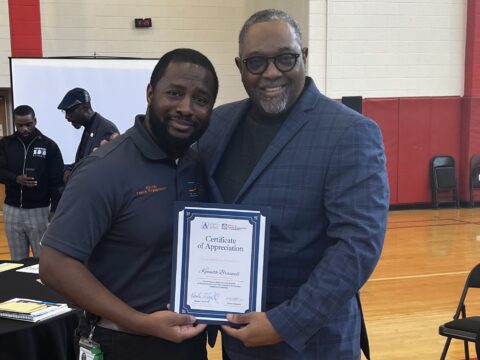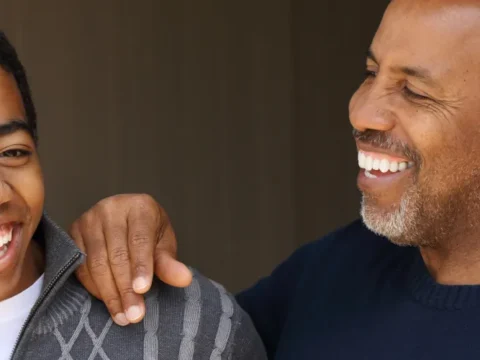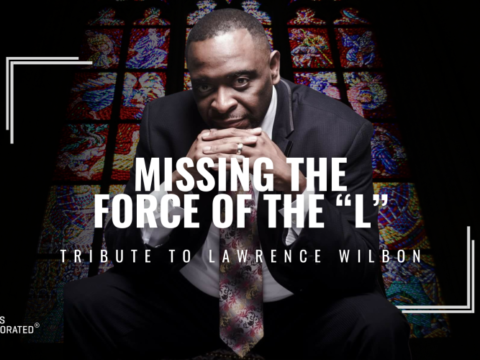For the first time in years, lawmakers gathered publicly to confront an issue many Georgians have never even heard of—legitimation.
By Kenneth Braswell
CEO, Fathers Incorporated
Director, National Responsible Fatherhood Clearinghouse | Host, I Am Dad Podcast
This past week, something powerful happened inside Georgia’s Capitol. Not a protest. Not a campaign. A conversation.
For the first time in years, lawmakers gathered publicly to confront an issue many Georgians have never even heard of—legitimation. And if you’re a father in Georgia, especially an unmarried one, you need to know what that word means. Because chances are, it’s standing between you and your legal rights to your child.
Legitimation is the process that allows a biological father—who isn’t married to the child’s mother—to gain full legal rights to their child. That means custody. Parenting time. The right to make decisions about education, healthcare, and daily life. And here’s the catch: Georgia is the only state in the country that still requires a separate court action for that to happen, even if the father’s name is on the birth certificate.
Let that sink in.
Real Fathers. Real Frustration.
At the House Study Committee on the Affordability and Accessibility of Georgia’s Legitimation Process, our team at Fathers Incorporated joined a room full of legislators, legal experts, and parents. But it wasn’t the policy talk that struck the hardest. It was the pain in the voices of fathers who’d done everything “right”—worked jobs, paid child support, stayed present—and still found themselves locked out of their children’s lives when it mattered most.
One dad shared how he hadn’t seen his daughter in eight months—not because he didn’t want to, but because he didn’t have legal standing to challenge a sudden custody change. Another, Marcus Roberts, talked about his kids being removed from his home despite years of parenting them daily. “I’ve never missed anything,” he said. “I’m just trying to be involved.”
These aren’t failures of fatherhood. They are failures of a legal system that makes fatherhood conditional.
Why This Matters
Legitimation isn’t just a court process—it’s a family stability issue, a parenting equity issue, a child well-being issue. The data tells us that children do better when both parents are involved, yet we’re making it harder—not easier—for fathers to be legally recognized.
Even Vice Chair of the committee, Rep. Teddy Reese, asked the question we’ve all been asking:
“If a father is doing everything society asks—supporting his child, being present, staying out of trouble—why does he still have to fight to be a parent?”
That’s the heart of the issue.
What We’re Doing About It
At Fathers Incorporated, we’ve been walking with fathers through this legal maze for years. Our Gentle Warriors Academy, funded by a federal FIRE grant, has served more than 900 fathers across the state. We’ve supported over 230 legitimation completions—one by one, family by family.
We’re also working with MDRC in a national randomized control trial (RCT) to study how fatherhood programs help dads overcome legitimation barriers. And our research partner, the Moynihan Institute, is building the evidence to show how legal fatherhood impacts school performance, youth behavior, and long-term family health.
Where We Go From Here
The Committee has a big job ahead: take what they heard, study the problem, and recommend real legislative solutions. That means standardizing legitimation procedures across Georgia. Removing fees for low-income fathers. Making sure every hospital and child support office is equipped to help. And it means investing in programs like ours that don’t just advocate—they act.
Fathers Incorporated will continue to lead, especially as we expand into underserved areas like Columbus, GA, where legitimation rates are low and need is high. We’re not just about changing laws. We’re about changing lives.
If You’re a Dad in Georgia
Know this: you’re not alone. If you’re trying to be in your child’s life but keep hitting legal roadblocks, we’re here for you. And if you’re a policymaker reading this—remember, real change starts when we stop asking fathers to prove they care and start building systems that assume they do.
It’s time Georgia brought fatherhood out of the courtroom and into the community where it belongs.
Kenneth Braswell is a nationally recognized leader in the responsible fatherhood movement, storyteller, and visionary advocate for Black families. As CEO of Fathers Incorporated and Director of the National Responsible Fatherhood Clearinghouse, he has spent over 30 years changing narratives, shaping policy, and empowering fathers nationwide. His award-winning work spans media, federal engagement, grassroots mobilization, and national thought leadership, amplifying the voices of men, building bridges between systems and communities, and centering on the transformative power of fatherhood in the pursuit of family well-being.
















